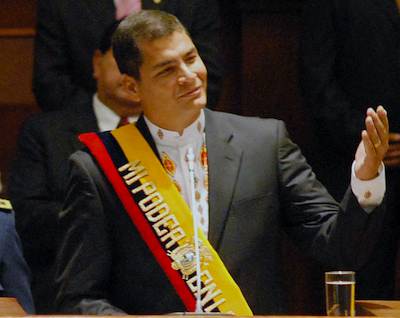China’s Participation Essential To Achieving Nuclear Security
He Liang-liang: Hello.
Jian: Mr. He, how do you interpret the Ministry of Foreign Affairs choosing this point in time to announce that President Hu Jintao will be attending the nuclear safety summit? What kind of considerations should be made?
He: When American President Obama received the newly appointed Chinese ambassador to the U.S., Zhang Yesui, he made a clear statement about restoring friendly China–U.S. relations. I think it is only because of this moment that China announced President Hu’s attendance of the nuclear safety summit in Washington, D.C.
Of course, we could assume that, even though China–U.S. relations are at a low point, President Hu would be attending the nuclear safety summit since the meeting goes well beyond the scope of China–U.S. bilateral relations. It is an important focal point in the global arena; the world’s major countries are to discuss important issues such as the prevention of nuclear proliferation and opposition of nuclear terrorism, which is now an especially poignant issue. Other issues are on the table, like Iran for example — whether or not to impose sanctions since the country is openly developing nuclear weapons. Also, sanctions against North Korea are an issue — should we carry them out? Will North Korea return to the Six Party Talks? Looking at these issues, one can clearly see that without China’s participation, we would not be able to achieve global nuclear security. So for President Hu to represent China and take part in the summit is only natural.
On the other hand, as a result of the meeting in Washington, D.C., current tensions in China–U.S. relations have started to ease. In principle, I think that President Hu visiting President Obama is a logical and well-reasoned thing to do. I am equally concerned, however, about whether we could achieve a consensus at the summit and whether it will be a feasible one. In addition, President Hu’s visits to Venezuela and Brazil caught people’s attention particularly because the BRIC countries will play an important role in the political and economic arenas in the future.
*Editor’s Note: He Liang-liang (Lawrence Ho) is deputy director of the editorial department of Phoenix Television, a privately owned broadcasting company in China.

